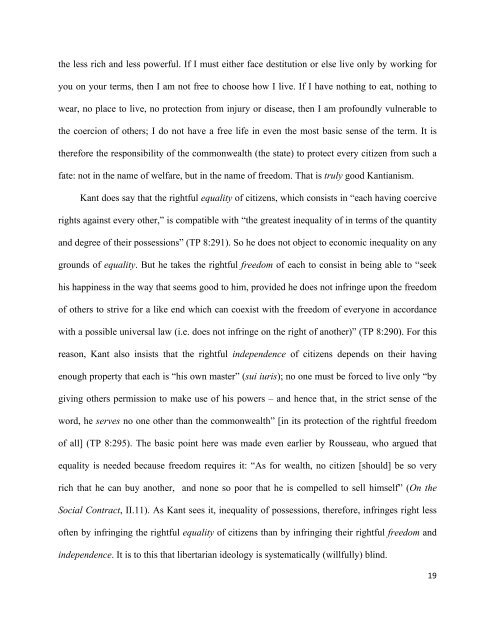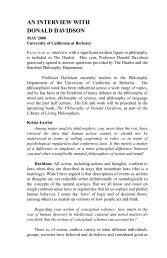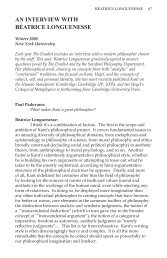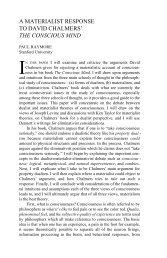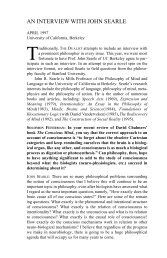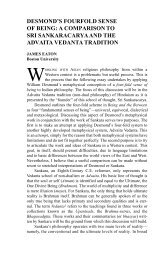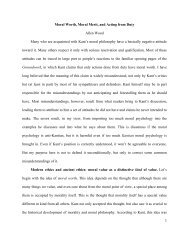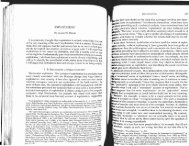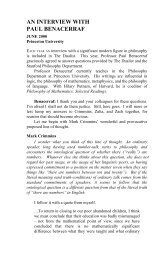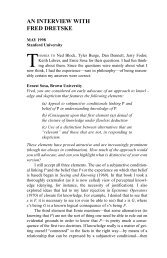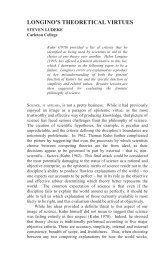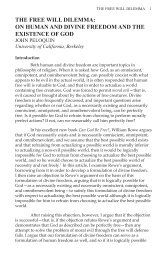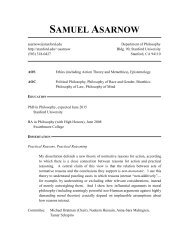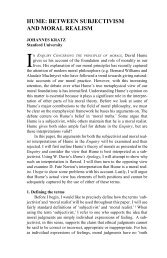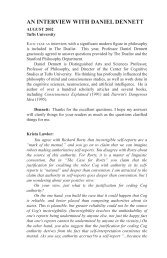The Independence of Right from Ethics Allen Wood Right and ethics ...
The Independence of Right from Ethics Allen Wood Right and ethics ...
The Independence of Right from Ethics Allen Wood Right and ethics ...
Create successful ePaper yourself
Turn your PDF publications into a flip-book with our unique Google optimized e-Paper software.
the less rich <strong>and</strong> less powerful. If I must either face destitution or else live only by working foryou on your terms, then I am not free to choose how I live. If I have nothing to eat, nothing towear, no place to live, no protection <strong>from</strong> injury or disease, then I am pr<strong>of</strong>oundly vulnerable tothe coercion <strong>of</strong> others; I do not have a free life in even the most basic sense <strong>of</strong> the term. It istherefore the responsibility <strong>of</strong> the commonwealth (the state) to protect every citizen <strong>from</strong> such afate: not in the name <strong>of</strong> welfare, but in the name <strong>of</strong> freedom. That is truly good Kantianism.Kant does say that the rightful equality <strong>of</strong> citizens, which consists in “each having coerciverights against every other,” is compatible with “the greatest inequality <strong>of</strong> in terms <strong>of</strong> the quantity<strong>and</strong> degree <strong>of</strong> their possessions” (TP 8:291). So he does not object to economic inequality on anygrounds <strong>of</strong> equality. But he takes the rightful freedom <strong>of</strong> each to consist in being able to “seekhis happiness in the way that seems good to him, provided he does not infringe upon the freedom<strong>of</strong> others to strive for a like end which can coexist with the freedom <strong>of</strong> everyone in accordancewith a possible universal law (i.e. does not infringe on the right <strong>of</strong> another)” (TP 8:290). For thisreason, Kant also insists that the rightful independence <strong>of</strong> citizens depends on their havingenough property that each is “his own master” (sui iuris); no one must be forced to live only “bygiving others permission to make use <strong>of</strong> his powers – <strong>and</strong> hence that, in the strict sense <strong>of</strong> theword, he serves no one other than the commonwealth” [in its protection <strong>of</strong> the rightful freedom<strong>of</strong> all] (TP 8:295). <strong>The</strong> basic point here was made even earlier by Rousseau, who argued thatequality is needed because freedom requires it: “As for wealth, no citizen [should] be so veryrich that he can buy another, <strong>and</strong> none so poor that he is compelled to sell himself” (On theSocial Contract, II.11). As Kant sees it, inequality <strong>of</strong> possessions, therefore, infringes right less<strong>of</strong>ten by infringing the rightful equality <strong>of</strong> citizens than by infringing their rightful freedom <strong>and</strong>independence. It is to this that libertarian ideology is systematically (willfully) blind.19


